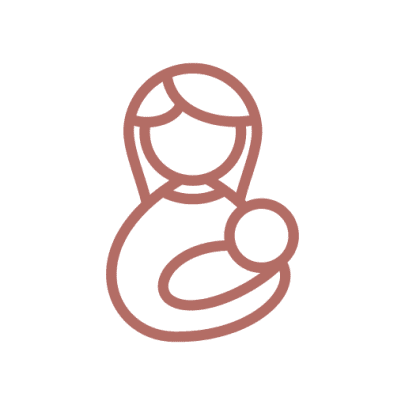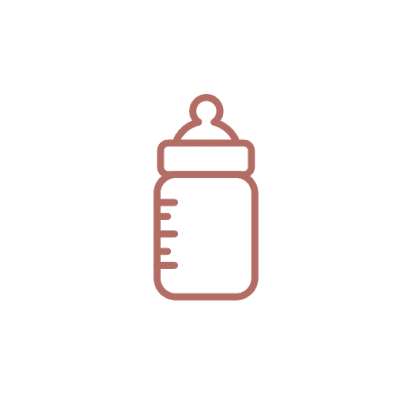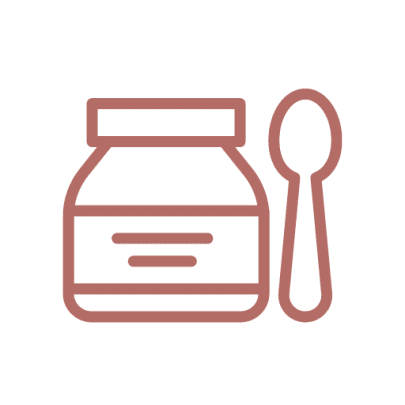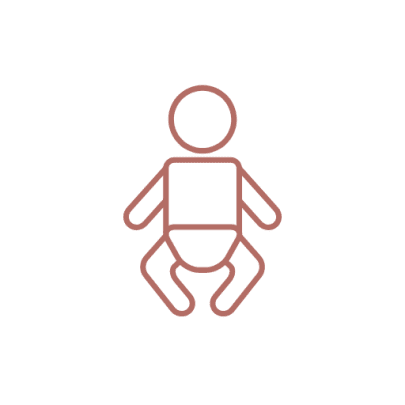We asked a group of mothers on our Facebook Page: “Do you have any idea’s on what can be done before birth to lower your risk of PND? Or what things need to happen in the early weeks after birth, to lessen the risk?”
Here are their replies:
I would have to say sleep and rest at every chance you get. I wish I’d done that maybe I wouldn’t have this if I did.
I was told that trying to get out in the sunshine every day helps.
I think the number one thing is REST. I found PND kicked in when I hadn’t slept for a couple of nights, it is so important to rest, after getting some rest I had a clearer mind and was able to put things into perspective and realize I couldn’t do everything on my own.
More support for mothers who don’t have family in the area, more understanding from GPs.
Take opportunities to vent and offers of help that sound helpful.
Ask for help; don’t try to be super woman in the last few weeks of pregnancy a supermum in the first few weeks
I would say don’t expect everything to be perfect.
Oh yeah! I suffer from depression anyway but you can lessen the likelihood of PND quite a bit if you are in that situation by working with your doctor to find an anti-depressant to use during pregnancy and breastfeeding. Plunket was great by referring me to a few agencies to help with childcare, food and cleaning which really lifted the burden on me and tell your friends!! I was amazed at how many of my friends had suffered away in silence and knew exactly how I felt. So they became a great support.
Give people a realistic idea of how hard being a parent is! Stop perpetuating the myth that it always comes naturally!!!
I think information for PND more known, given by a Dr. and/or Midwifes to pregnant women before baby arrives would help.
To have pregnant women informed that PND can happen and does not make you weak or a bad mum, Information that lets women know signs of PND and how to deal with it, IE places and people they can turn to.
I dealt with PND on my own with my first born as I did not know at first what was happening to me and/or who to turn to because I was not aware of PND. I am currently pregnant with #2 after two M/c’s in between and I am working with the Maternity Mental Health Team from the hospital as I suffer from Depression and Anxiety from this pregnancy and they will work with me after baby arrives to help me on me out if I then suffer from PND again. Since having help I feel stronger and feel more able to cope. People need to talk more about PND out loud and be proud they have asked for help!
For my second having a plan in place in advance helped a lot, I knew what would happen where my support was who was available when. I had people organized in advance to provide meals and did shopping online. This time I am making sure the house is organized so if people come to help its easy. Ask people to help in advance and let them know its practical help you want. If they want to come cuddle the baby that’s great, get them to come take baby for a walk so you can sleep. Realize the house can be a mess, the older kids can eat chicken nuggets or baked beans if need be and what matters is rest, sleep and time to bond.
The more help for people who don’t have family living nearby, or make sure they move closer! (Not always possible, I know) it makes it a very lonely time as family can and will be there to help in ways that others can’t or don’t and it’s much easier to ask for help from them. So not being afraid to ask for help is the key, although that is so hard. A support network of mums who have been through it and have slightly older kids, who can go and hang out with new mums and help somehow by watching a baby so that the new mum can rest, have a shower, get dinner ready or whatever would be good, some kind of buddy system??
Rest, sleep and take offers of help!!! And be realistic, you can’t do everything
Knitting helped me, it is almost like meditating! It helped me relax during pregnancy and after the birth 🙂
I had severe PND after my first. I tried so hard to keep thinking positively and focus on the good things during my second pregnancy and after her birth. I talked heaps about my feelings while I was struggling with DD’s poor attachment. I knew I was feeling a little down again but I kept busy taking my DS and DD out for walks and to the shops and to friend’s houses. Unfortunately for me I’ve got PND again. But I am not going to let myself get down about it. I am taking advantage of all the support I can get not shut myself off like I did last time
Also, you cannot compare yourself to other woman; some people make it look easy. But the truth is we don’t know whets happening behind closed doors we don’t know what people are really feeling, it’s so important to look at yourself only and your circumstances and work through everything in your own way -the best you can instead of comparing yourself to others.
Set up your support network well ahead of time. For me that meant with my 3rd child I was already under MMH care before she was born, and they helped me create a support plan. This included a birth plan, who was going to help with the other children when the baby came and strategies for coping with tiredness and stress. Also, rather than having a homebirth as I has with my previous two children, I had her at a birthing unit so I could stay there for the three days postpartum. I still got PND, but I had people looking out for me, talking to me, helping and supporting me.
Realistic expectations, gentle birth with no intervention (if possible), post birth counseling for anyone who had a traumatic birth, post birth support, finding a support group (the ABA really helped me!).
Expectations!! – I think we need to be more realistic with what life will be like and that we don’t need to be superwomen. Also I think the pressure to breastfeed and have that magical bond needs to be toned down. It doesn’t happen for everyone. In saying that with a well managed second birth, PND drugs and a great GP my second experience was totally different.
it is OK to use medication and it can really, really, really help.
Support support support: they say it’s out there but when you have a new born, you hardly have a second to shower let alone go looking for these supports.
I’m not a sufferer of PND but, I am a good friend and I like to make sure my friends know I am always there for them to talk to or help in anyway. Sometimes just giving our friends a hug and saying “I’m here, and it’s ok” means more then we know.
Keeping away from negative people. (I know it can be hard if you live with them) the pressure to be supermum is very hard and they shouldn’t expect you to be especially with baby #1
When at Playcentre I had the pleasure of spending time with some lovely women from Sri Lanka. When one of the women in their community had a baby she was cared for by the others. She and her baby stayed home for the first three months and everything was done for her. She received massages, was fed etc and her only job was to bond with and care for her baby. I was overwhelmed by the support these women showed each other, and I’m sure it must significantly minimize PND within those circles.
Yes glorious sleep or at least rest, 10 min cat naps really do help. Apparently high levels of calcium helps and it seemed to help until I couldn’t have it as bubs has a milk protein allergy. Sunshine or a Vit D supplement, fresh air, good energy food or good supplement. Some sort of support network especially when you are away from family and friends. And never ever be ashamed or feel weak or useless etc to ask for help, we are still wonderful loving mums even if we need a helping hand! Blow off other peoples expectations and maybe even your own (easier said than done) and read up about the signs of PND so you know when to seek help or voice your concerns before it gets severe 🙂 experience is a great but hard teacher.
Midwives, GPs and Plunket Nurses all need to be on the watch for it and ask the appropriate questions when they see mums. A diet rich in Omega 3 may be helpful before and after birth. And practical support after birth is key, I believe. Leaving a mother to manage alone is unfair. Family and friends can make meals and give the new mum a chance to sleep. In some instances women may need to be encouraged to organize paid home-help if volunteers aren’t available. Also, the new Dad’s bosses and work mates ought to understand the need for him to stay home and help in the early days.
I’ve had PND twice and last year I had extremely severe depression. Its complex and recovery can be a long process. There is a lot we can all do to help mothers – stop judging ourselves and others and support all parental choice. The idealism surrounding breastfeeding, natural birth, etc are so damaging. We all know that pregnancy and motherhood can be tough and I think we all do our best. Every mother should have the right to make the choices that she feels are right for her and her family without being judged. New mothers need to be surrounded with lots of love and support. Being open and talking about mental illness is important too. There is still some stigma attached to it and particularly the use of medication. Sometimes medication is an absolute necessity and a lifeline. Sometimes mothers are judged (and judge themselves) as having become depressed because they are somehow weak and can’t cope with motherhood. It is the opposite – they are struggling to cope with motherhood because they are depressed.
I had PND with my first born, but it wasn’t diagnosed until I was pregnant with my second child. I was started on amitryptaline (sp?) and it has helped so much this time around. I’m completely level, and able to really enjoy being a new mommy again. Yeah it’s hard getting next to no sleep (because of the baby not the drugs) and all that jazz but I don’t feel despair or anger about it, just a reluctant acceptance lol. The worst part is that Doctors and midwives really discourage women from medications during pregnancy, even when they know that they are depressed. My psychologist actually scoffed when I asked if I was actually able to take this because I was pregnant. He assured me that Psychologists know more about drugs for mental illness than GP’s do, and that many studies show such adverse reactions to the fetus due to maternal stress and or depression, such as a link to schizophrenia. That’s serious stuff. My daughter was born on the 15th of June, and she is the happiest most content newborn (albeit confused about night and day and when to sleep lol) I have ever seen. She is my joy, as is my son, and my hubby. I wish women would come into the 21st century and realize that PND is not a weakness, it is a medical problem. Speak to a therapist/psychologist about how your feeling. If you feel like your emotions are out of control, and you are pregnant, don’t be afraid to ask for a referral to a mental health professional. It is so important to you, your children, and your partner to be able to manage it effectively. Support from family and friends are also essential, but sometimes, like in my case, it just wasn’t enough. Anyhow I hope this helps someone out there 🙂
Some of the practical things others have mentioned are good too – Omega 3, vitamin D, iron etc.
I notice some other comments that confirm to me that a lot of people don’t really realize what PND is. It’s not just days or weeks of feeling tired, a bit down or that you are struggling. Everyone’s symptoms are different but for me it was a deep issue – not feeling like myself, not finding pleasure or satisfaction in anything, having no hope for the future, feeling full of guilt and anxiety, feeling unable to cope or problem solve and constantly utterly exhausted. At my worst I had almost no short-term memory, was unable to drive, needed heaps of support to care for my children, never knew what day of the week it was and struggled with the simplest tasks like dialing a telephone number. It is a very serious illness. Thank goodness I’m back to my normal happy self, passionate about life and energized!
I believe a “birth debrief” would help a lot of women. Sitting down and discussing how the birth went and how it affected them would really help. It’s amazing how good it feels to process your thoughts by voicing or writing them down. For me, talking and writing about the birth was incredibly healing. Also to be aware that you might not tick all the boxes for the supposed symptoms of PND and PTSD but that doesn’t mean you can’t ask for help if it doesn’t feel right. Keep seeking help even if you have to try several avenues.
I think there should be a lot of info with regards to PND provided to both the mother and her immediate support people. Sometimes it’s the expectations we place on ourselves, but sometimes it’s the expectations we think OTHERS have of us. Regardless of whether our husbands expect wonder woman or basket case, we generally think they expect wonder woman, and they never feel the need to tell us we’re doing fine until we’re in our pj’s at 3pm, surrounded by unfolded washing wailing that we haven’t organized any dinner. I think awareness is the most important thing. I’ve had depression on and off for years but my first child threw me for a 6, she had reflux, and I was so tired and stressed I wasn’t sure if I was depressed or suffering from extreme lack of sleep so didn’t reach out for help as I usually do, eventually my husband dragged me to the doctor, we got medication for PND and reflux and eventually life got better. If me or my husband had figured it out sooner I think it would have been a mere bump in the road instead of the mountain it ended up being.
I had PND after my first and now that I look back… I can see what caused it clearly! My midwife pushed and pushed for me to breastfeed. I tried as hard as I could but my daughter was throwing up after every feed (Actual vomiting. Not spilling) and she took a month to get back to birth weight! Midwife caused stress which made PND worse (or started it off!)
I say just make sure you know that it’s YOUR choice what you do. I wanted to give up breastfeeding for the sake of my baby (Who I found out was lactose intolerant) but she made it all WAY too stressful. If people try to push you to do something YOU don’t want to do. Tell them to go jump!
I like to think of myself as a confident and “under control” type of person, but with the PND I felt lost, not capable of doing anything- even the smallest things, even thought “the world would be a better place without me” and that my kids and husband didn’t need me. It is terrible to go through but also so glad I’m back to normal, re-energized and happy to be alive!!
I had quite severe depression as a teenager so was very worried about getting PND. My midwife was fantastic and set me up with a mental health nurse. We met before I had my baby so it was much easier to get help when I did have problems after birth. She helped me get through the tough first months
I agree, lack of sleep really did it for me when baby number two was born. She took forever to breastfeed, would take 2 hours each feed 2 / 3 times per night. I felt like I was doing a terrible job with the washing, housework etc, and thought I wasn’t coping, but truth be known I was just exhausted! And I tried to have it all together in the first few weeks, do the vacuuming washing etc and have a tidy house, this time when baby # 3 arrives in Oct I am going to remind myself just to relax and not try do too much and give myself permission to be exhausted and not do so much housework.
I went out shopping a few weeks after my 2nd child’s birth (during my very short supermum moment) and a lovely Indian woman at the checkout mentioned that her mother couldn’t believe how soon mothers here are out and about and expected to cope and get on with life after having their babies!!! I think we are very hard on ourselves and our kids in order to be “back to normal” it puts us under a massive burden.
At the end of the day it is family support, whether it is husband/partner, older children or sister or friends, those that will rock a crying baby, make dinner, vacuum, etc so just make sure u have adequate support. Having my 3rd child, you are not so worried about what people think & go by baby needs. The worse for me was milk supply, midwife encouraged me to feed (& express & top up formula) till 4 weeks, she wanted me to do it till 6 weeks but I refused, was worn out. So family support & not allowing yourself to get depressed over little things. BTW I’m a single mum, work fulltime but have lots of family support & can have an hour break when I need it that makes a difference
For baby number two I am not going to be too hard on myself if breastfeeding doesn’t work out (it’s not the end of the world despite what the lactation consultants tell you) and also accept all offers of help (with housework, looking after my toddler, etc) that come my way.
Not only just after birth, they can develop it later when new problems arise with baby i.e. reflux/GORD, colic, allergies, eczema, etc kick in, then new problem start all over again, can make mother feel exhausting, very low and struggling with sleep deprivation all over again, can be prolonged.
Certainly sleep was my biggest friend and having less than an hour a night for some nights was my worst enemy. I tried to get lots of naps in, but also to get out of the house as much as possible too – to go somewhere and be with people who made me feel normal.
My advice to friends and family of women with PND, or women with new babies in general, is rather than ask if she wants help, just do it! Make the meal and take it around, turn up and take the other kids, fold the washing, do the grocery shopping etc. When I was depressed it was just as hard to answer people who asked how they could help as it was to ask for help, so don’t ask do! 🙂
PND was horrible for me, I was actually hospitalized for a while, the reason why it got so bad was because I was refused help for about a year, I would go to psychologists, psychiatrists etc, and they all ignored my cries for help, and just told me to “go home and sleep”. The most important thing is to keep fighting to be heard, and sometimes sleep and vitamins just aren’t enough, medication doesn’t make you weak, but it helps when nothing else does. So, keep fighting for yourself 🙂
The thing that is really hard with PND is that most people show signs of PND when people aren’t around and those with PND are not in the right frame of mind to seek help. I think in those first 4-8 weeks new mothers need their families to help, and for those women who refuse it, their families need to just do it. My mum moved in with us when I had my twins and was just all mum-sy. She did cooking, cleaning and let me just sleep and feed my babies.
I think that in general, when having your first baby you are told all these wonderful things like you will bond with your baby instantaneously and that you will fall in love the minute you see the baby, that it’s the best thing in life. no one speaks to you about how life changing it is. From lack of sleep to the massive relationship change you have with your partner. For me, I planned a natural birth at a birthing center ended up with a c-section. My milk didn’t come in for 5 days, my baby cried for the first 4 days of his life, except for during the day when dad had him, my baby lost 13% of his birth weight, was topped up with formula, had colic, did not sleep, did not nap, cried all the time I’m not saying I didn’t love my baby b/c I did (do) but this unicorn and rainbow picture that everyone painted for me was so not true. I think that people need to be more honest. It should be discussed in antenatal classes. I get that you can’t prepare people for the unknown but I don’t think you should tell people that you will fall in love with your child and bond from the minute you see it b/c if you don’t then you automatically think something is wrong with you when yes you may love the child from the moment you lay eyes on it, but it’s actually normal to need a few weeks to really bond with your child.
I was diagnosed with PND with my 2nd and had 2 breakdowns after my 3rd that is only 9 months old. In hindsight I probe had it after my 1st. I found it hard finding the support networks and feel through every crack possible. I am so grateful for the amazing friends that I have and that I have know got the support networks in place that I should have had a LONG time ago.
If you are in the CHCH area, the Mothers and Babies Service is great. You have NOT failed if you are referred to M&B. get as much rest as you can, if you qualify for domestic assistance take it, and you are NOT failing by taking advantage of childcare facilities such as pre-school and nannies. There is light at the other end. I am still fighting to get there.
I would like to see support offered through the hospital much the same as the pre birth classes. One house call is not enough. There should be at least 6 weeks of support given without it having to be asked for, this may help mums overcome or not develop PND as they are supported when they are most vulnerable.
Go into birth with no expectations, I have 4 children, first two births not so good, second 2 much better. If I had a birth plan I would have been devastated, as they didn’t go to plan, roll with the punches and don’t get caught up with the rules. Just enjoy your experience and try not to worry about all the good meaning advice as for me it sent me round the bend and back 🙂
I suffered from severe PND with my son. I was under the care of MMH before he arrived but gosh the past 13 months has been a struggle. I have just been discharged from MMH and will be on medication for the rest of my life. I think the best advice I can give is not to be ashamed and to talk to anyone / everyone about your experience; you may just find that you are not the only one struggling and that someone else was too scared to reach out for help 🙂
Antenatal classes were useless. Mums need postnatal classes that involve things like tired signs, reasons why babies cry etc.
I suffered severe during my pregnancy. I think PND needs to be checked for, all throughout pregnancy! It should also be re named & advertised as PRE & POST NATAL DEPRESSION!! I suffered from pre N D & thank God I have got great support & care & a nurse as a Mother, so I was lucky & recovered before bub was born & haven’t suffered any Post N D what so ever. I’m so happy & relieved that I’m truly enjoying motherhood & my new baby (6 month old) that I have to pinch myself sometimes 🙂 What has helped me is medication since pregnancy & I did see a psychiatrist through my pregnancy also & she helped me so much. I think everyone needs more education on mental health & medication & everything related to this topic as it’s still such a “hush hush” topic, not often discussed. Doctors & nurses at antenatal appointments need to be more aware/switched on and be looking out for PRE N D signs so they can jump onto fixing it before it could then lead onto be POST N D. Prevention! I say, yes to psychologists, psychiatrists & medication. It also needs to be talked about as a good thing in our culture/society & not judged as bad thing or that you’re a Loony tune if you need them.
Antenatal classes need to change and be more open and holistic. First time parents think they are covering all bases getting prepared but these classes push some agendas and not others. Breastfeeding comes across as a blissful easy thing (which of course it can be) and a medicalised hospital labour and birth is the only type covered. I lend out my ‘Happiest Baby on the Block’ and ‘Dunstan Bany Language’ DVDs to parents in those first few weeks just to give them some kind of support when it actually all starts to be real postnatally, not antenatally. Maybe antenatal (to develop a relationship) and postnatal midwife visits for just the partner? Sometimes it takes someone else to pick up the early signs and to push you to seek help. And dads get it too!
Sleep deprivation is STRONGLY linked to PND. So being able to help women put strategies in place to help with their babies feeding/sleeping which in turn helps Mums to be more confident and able to cope better with the big change of adjusting to motherhood, is really rewarding for me. My heart really goes out to women who feel isolated at this (what is supposed to be) a special time. Women of today seem to have made this supermum mentality and we struggle to ask for help when we need it so I think it’s awesome that you are helping with the awareness of PND 🙂
Antenatal classes need to educate Mums-to-be about signs to look out for and where to get help. Midwives also need to be educating and looking out for signs etc. General public information is needed also. I asked my midwife if she thought I had PND and her response was yes but you don’t need any medication, you’ll be alright! I told my Mum I was anxious all the time and she said I was fine. I told my Pastor’s wife that I was anxious all the time and she said that this was normal! Basically I was crying out for help and no body listened until I saw the Plunket Nurse when baby was about 9months and she picked it up. It still really disappoints me that this was allowed to go on for so long without treatment, I would like to help others avoid going through a similar experience.
I found that with my third child knowing I had PND with my first 2 helped me a lot. I knew then what I was looking for that in itself helped me before I had my number 3 baby. Positive thinking actually does help. And the other thing that helped me was getting small jobs done. Just completing a small task helped a lot. So whenever I felt the depression coming on I would go clean something or do a load of dishes and it kept my mind on something and gave me a sense of accomplishment.
It has often crossed my mind even before I was thinking about having a baby, due in 11 weeks and I am more worried about not knowing I have it, therefore not being able to start doing something about it and the fact that some family members think that PND is no excuse and you just need to “harden up”.
Attachment with your baby: Through, Lots of skin to skin contact, Support with breastfeeding so it’s successful, Co-sleeping, baby wearing promote the release of all those happy, nurturing, mothering hormones. Avoid our culture’s strong pressure to detach from our babies
Support and understanding, especially from those closest to you, friends and family who will come and help with cleaning/holding baby etc so that mum can rest and relax.
Firstly to somehow have a more realistic expectation on how challenging things can be e.g. 80% of women experience problems with bf sleep as much as you need (when bubs is sleeping) make sure you have help and don’t try be super mum. Have a few hours a week to yourself for a massage or a pedi (etc) with a friend. Make an effort to get out of the house, go walking and join groups, as many as you can and talk to lots of other mums don’t keep it a secret, be open and talk about how you are feeling, there will at least be one other mum feeling the same. Happy mummy means happy baby








